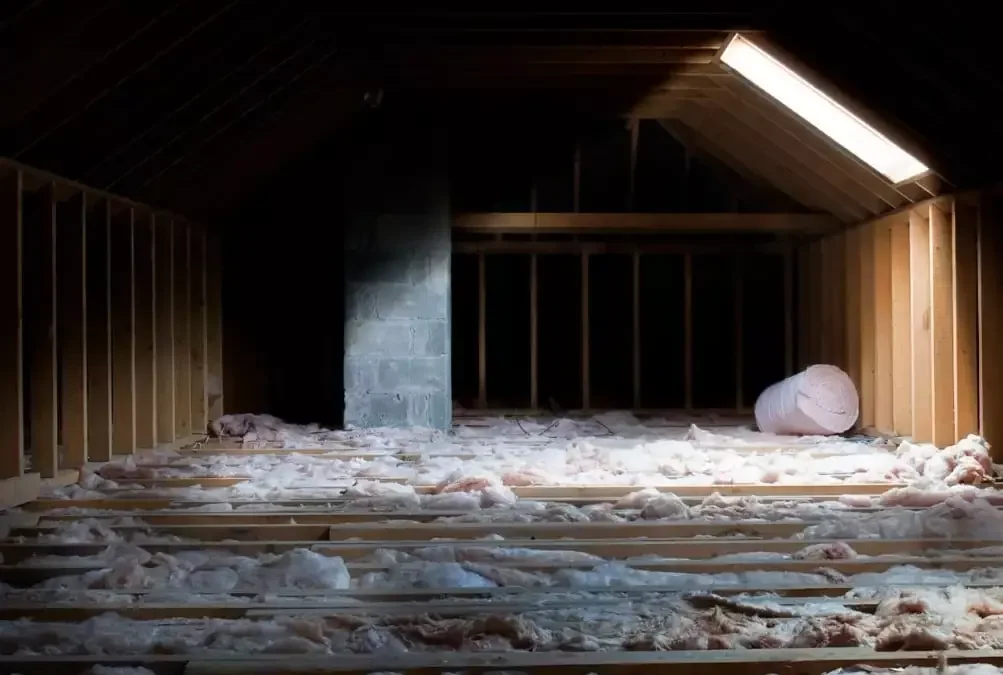The Importance of Air Quality
Most of us spend a lot of time indoors, especially at home. Good air quality is essential for our health and well-being. Poor air quality can lead to respiratory problems, allergies, and other health issues. By maintaining good air quality in your home, you can create a healthier environment for you and your family.
![]()
Understanding Attic Maintenance
Attic maintenance is crucial for good air quality in your home. Properly maintaining your attic can prevent mold growth and ensure proper ventilation throughout your house. Here are some key points to understand about attic maintenance:
- Regularly inspect your attic for any signs of leaks or moisture.
- Keep the attic well-insulated to prevent heat loss and maintain energy efficiency.
- Properly seal any gaps or cracks to prevent pests from entering your home through the attic.
- Ensure that vents are clear and unobstructed to allow for adequate air circulation.
By staying on top of attic maintenance tasks, you can improve the air quality in your home and help maintain a healthy living environment for you and your family.
Common Air Quality Issues Linked to Attic Conditions
Attics can be a breeding ground for various air quality issues due to poor ventilation and insulation. Here are some common problems associated with attic conditions:
-
Mold and Mildew: High humidity levels in the attic can lead to mold and mildew growth, which can release spores into the air, causing respiratory issues.
-
Pest Infestations: Attics are often prone to pest infestations, such as rodents, birds, and insects, which can contaminate the air with droppings and dander.
-
Poor Insulation: Inadequate insulation in the attic can result in temperature fluctuations, leading to condensation and the formation of airborne pollutants.
-
Volatile Organic Compounds (VOCs): Chemicals from household products stored in the attic, like paints and cleaning supplies, can emit VOCs that degrade air quality.
-
Radon: Attics can serve as entry points for radon gas, a naturally occurring radioactive gas that can seep into the home and pose serious health risks.
Identifying and addressing these common air quality issues in your attic is crucial for maintaining a healthy indoor environment.
Signs of Poor Air Quality in Your Home
Musty odors, frequent allergies, and mold growth are common signs of poor air quality in your home. Condensation on windows, difficulty breathing, and an increase in respiratory issues can also indicate that the air you’re breathing may not be as clean as it should be. Identifying these signs is crucial in maintaining a healthy living environment and taking the necessary steps to improve air quality.
The Role of Attic Maintenance in Improving Air Quality
Attic maintenance plays a crucial role in improving your home’s air quality. When your attic is well-maintained, it helps prevent issues like mold growth and pest infestations, which can impact the air you breathe inside your home. Proper attic maintenance also helps in controlling moisture levels, which can lead to a healthier living environment. Regularly checking and maintaining your attic ensures that it remains a clean and dry space, ultimately contributing to better indoor air quality.
Effective Strategies for Attic Maintenance
Here are some effective strategies that can help you maintain your attic and improve the air quality in your home:
- Regular Inspection: Inspect your attic regularly for signs of leaks, moisture, pests, or mold.
- Proper Ventilation: Ensure that your attic is well-ventilated to prevent moisture buildup, which can lead to mold and mildew growth.
- Insulation Check: Check the insulation in your attic to ensure it is in good condition and properly installed to help regulate temperature and energy efficiency.
- Sealing Air Leaks: Seal any air leaks in your attic to prevent drafts and energy loss.
- Cleaning: Regularly clean your attic to remove dust, debris, and potential allergens that can affect air quality.
By following these strategies, you can effectively maintain your attic and contribute to better air quality in your living space.
Cleaning and Insulation Tips for Better Air Quality
Attics can accumulate dust and dirt that can affect your home’s air quality. Cleaning your attic regularly can help improve the air you breathe. Additionally, ensuring your attic is well insulated can prevent outside pollutants from entering your home. Here are some tips to help you maintain a clean and well-insulated attic for better air quality:
- Remove dust and debris regularly to prevent them from circulating in your living spaces.
- Seal any gaps or cracks in the attic to prevent air leaks that can bring in dust and pollutants.
- Consider installing proper insulation to regulate temperature and keep pollutants out.
- Inspect your attic for any signs of mold or pests, as they can also contribute to poor air quality.
Taking these steps can improve the air quality in your home and contribute to a healthier living environment for you and your family.
Ventilation Practices for Optimal Air Quality
Proper ventilation is key to maintaining good air quality in your home. Here are some ventilation practices to ensure optimal air quality:
- Use exhaust fans: Install exhaust fans in your kitchen and bathroom to remove moisture and pollutants.
- Open windows: Regularly open windows to let fresh air circulate throughout your home.
- Maintain attic vents: Ensure your attic vents are clean and unobstructed to allow for proper airflow.
- Consider a whole-house ventilation system: A whole-house ventilation system can help circulate air throughout your home, improving overall air quality.
By following these ventilation practices, you can help improve the air quality in your home and create a healthier living environment for you and your family.
Benefits of Regular Attic Maintenance on Air Quality
Regular attic maintenance can greatly improve the air quality in your home. By keeping your attic well-maintained, you can reduce the presence of harmful allergens such as mold, dust, and pollen that can negatively affect your respiratory health. Proper attic maintenance also helps prevent pests like rodents and insects from entering your living space, reducing the risk of indoor air contamination. Additionally, a well-maintained attic ensures proper ventilation, which helps in maintaining a fresh and clean indoor air environment.
Conclusion – Ensuring Healthy Indoor Air Quality
When it comes to maintaining healthy indoor air quality, taking care of your attic is crucial. By properly insulating and ventilating your attic, you can prevent moisture buildup and mold growth, which can significantly impact the air you breathe indoors. Regularly inspecting your attic for any signs of damage or leaks is essential to ensure that your home’s air quality remains optimal. Additionally, investing in air purifiers and proper HVAC maintenance can further enhance the air quality in your living spaces. Prioritizing attic maintenance is a proactive approach to safeguarding the air you and your family breathe every day.

